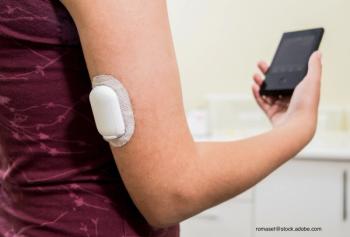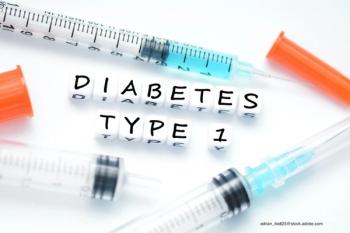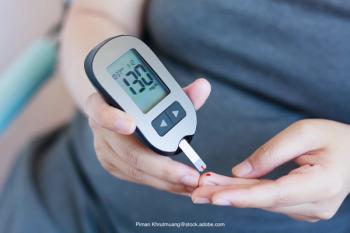
Drs Goldman and Meece explore an array of drug therapies available to treat diabetes.

Drs Goldman and Meece explore an array of drug therapies available to treat diabetes.

Omnipod DASH PDMs are at increased risk of malfunction if overcharged beyond the maximum battery voltage.

Many diabetes patients are rationing supplies, putting off purchasing them, or completely forgoing them because of costs.

To commemorate Diabetes Awareness Month, the pharmacy is offering a variety of free services.

Patients can face risks like hypertension and difficult delivery.

Key opinion leaders share strategies to effectively educate patients on diabetes.

Drs Jerry Meece and Jennifer Goldman offer treatment plans based on individualized patient care models for patients with diabetes.

Pharmacy experts share insights on the impact of assistance programs offered for patients with diabetes.

Research shows that an increase in intermittent scanning helps improve glycemic control and reduce the fear of hypoglycemia.

Jennifer D. Goldman, RPh, PharmD, CDCES, BC-ADM, FCCP, explores strategies to increase patient adherence to treatment.

Jerry Meece, RPh, CDCES, FACA, FADCES, initiates a discussion around the increasing prevalence of patients diagnosed with diabetes.

Study examines patient action that ‘is frequently harmful, and sometimes deadly'.

An analysis of data from more than 640,000 people with diabetes recorded between 2015-2020 is providing new insight into what study investigators are calling "troubling" trends in the incidence of CKD in the face a growing diabetes epidemic.

Examining the benefits of using flash glucose monitoring in patients with type 1 diabetes.

Patients with metabolic syndrome and diabetes may be experiencing challenges outside medication management.

New data indicate that a diabetes diagnosis may be associated with earlier onset of menopause.

Pre-pandemic survey examines effects of heart disease, asthma, and more.

Building relationships with patients showed long-term benefits.

Evidence suggests it improves outcomes and reduces hospitalizations.

The iLet Bionic Pancreas was associated with improved glycemic control and time in target glucose range compared to standard care in a cohort of people with type 1 diabetes aged 6-79 years of age.

Two new studies offer conflicting results.

A study provides insight into the real-world effects of 2.4 mg semaglutide (Wegovy) for weight management.

Modeling indicates a significant increase in patients with type 1 diabetes over the next several years.

The risk could allow unauthorized users to change insulin levels.

A survey offers new insight into patient preferences related to newer oral therapies in type 2 diabetes.